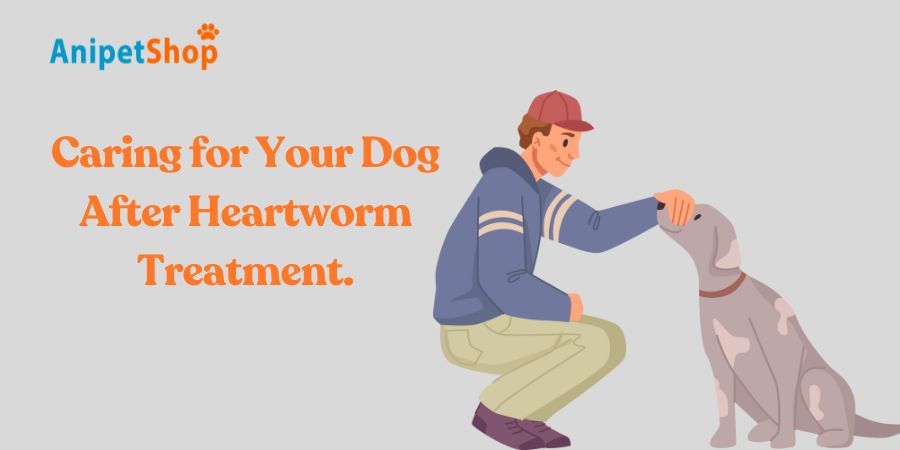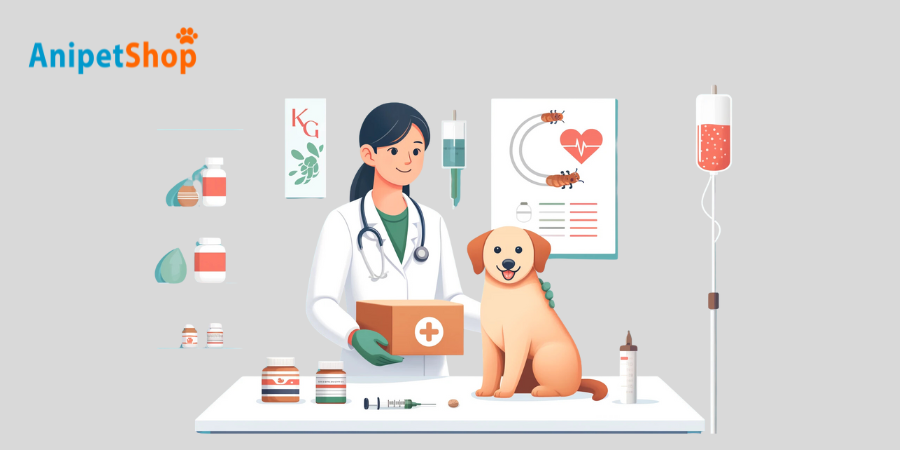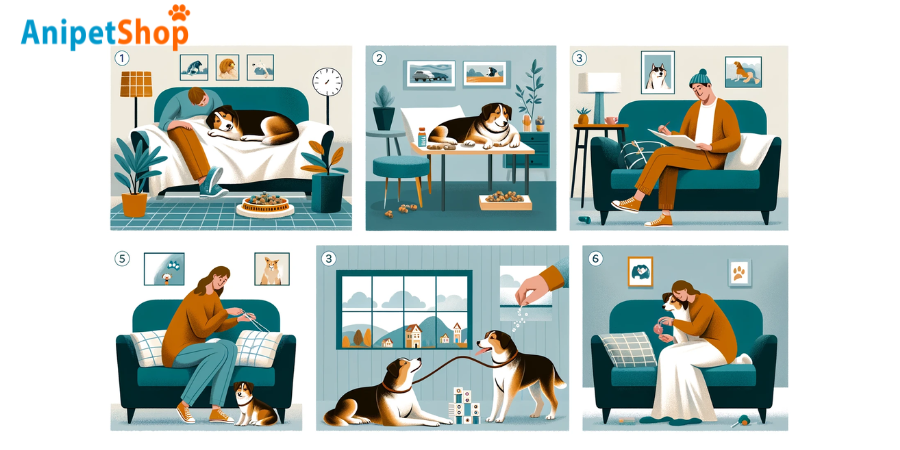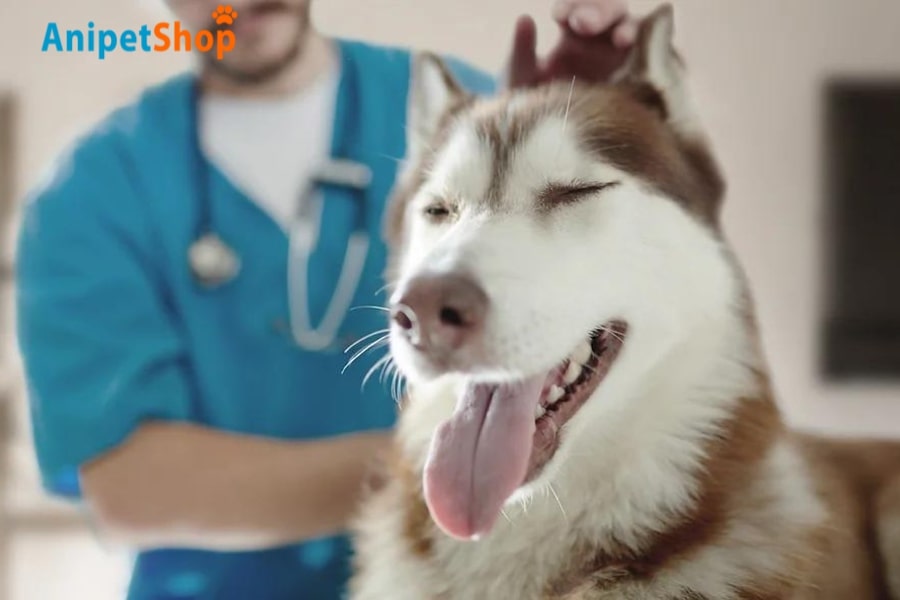Caring for Your Dog During Heartworm Treatment
Heartworm disease is a dangerous condition caused by parasitic worms that live in the heart, lungs, and blood vessels of infected dogs. These worms can grow up to a foot long, causing severe damage to the heart, lungs, and other vital organs. If untreated, heartworm disease can lead to heart failure and even death. The best way to protect your dog is through year-round heartworm prevention. These medications offer reliable 12-month protection against this potentially fatal condition. However, if your dog contracts heartworm disease, treatment options are available.
This guide provides information about using medications in comprehensive tips for special care for your dog during heartworm treatment.

Using Medications in Heartworm Treatment
Melarsomine dihydrochloride, marketed under the brand name Immiticide®, is a primary treatment for heartworm disease in dogs. This medication works by targeting and killing adult heartworms through a series of deep intramuscular injections, typically administered in the lumbar muscles (L3–L5).
The treatment regimen recommended by the American Heartworm Society involves three injections. The initial injection is followed by two more injections given 24 hours apart approximately one month later. This protocol ensures over 98% effectiveness in eliminating the heartworms.
While generally safe when administered correctly, melarsomine treatment carries some risks. Common side effects include:
-
- Injection Site Reactions: Pain, swelling, and tenderness are frequent, as the drug is administered deeply into muscle tissue.
- Coughing and Gagging: These symptoms may occur as the dead worms are broken down and absorbed by the body.
- Lethargy and Depression: Some dogs may experience reduced energy levels or mood changes.
- Nausea and Loss of Appetite: Temporary digestive upset is also possible.
Post-treatment care is crucial. Dogs must be kept calm and exercise-restricted for several weeks to prevent complications such as thromboembolism, where dead worms can cause blockages in blood vessels. Monitoring by a veterinarian throughout the treatment process is essential to manage and mitigate any adverse effects.

5+ effective tips for caring your dogs during heartworm treatment
1. Limit Physical Activity
Restricting physical activity is crucial during heartworm treatment due to the potential strain on the cardiovascular and respiratory systems. The severity of heartworm disease varies by stage, with stage 4 being the most severe. Your veterinarian will determine the appropriate level of activity based on the disease stage. Avoid stimulating activities and provide a calm environment. Instead of walks, opt for cuddling or quiet time to help your dog heal.
2. Substitute Activity with Affection
Engage in low-key activities such as cuddling while reading or watching TV. This helps maintain a bond with your dog without causing physical strain. Using a leash or harness during these cuddle sessions can prevent sudden movements that might aggravate the condition.
3. Use Food for Distraction
To provide mental stimulation without physical exertion, use food puzzles or interactive toys. These can keep your dog’s mind engaged and prevent boredom. Be careful not to overfeed, as physical activity is limited during treatment.
4. Provide Chew Toys
Durable chew toys can be a great way to alleviate boredom and provide a calming activity for your dog. This can also help keep your dog occupied during periods of confinement or restricted activity.
5. Leash Control
Always use a leash during bathroom breaks to prevent your dog from running or chasing after distractions. A sturdy leash offers better control than a retractable one, ensuring your dog stays safe and calm during these outings.
6. Additional Care Tips
Here is some additional care tips for your dogs after heartworm treatment:
-
- Visitors: Minimize your dog’s exposure to visitors to avoid excitement. Keep your dog in a quiet room with distractions like music or TV to reduce stimulation.
- Confinement: During the critical recovery period, confine your dog to a safe indoor area such as a kennel. Ensure regular but gentle interaction to prevent loneliness.
- Preventive Measures: After treatment, continue using heartworm preventatives as prescribed by your vet. Injectable preventatives lasting 6 or 12 months are convenient options to protect your dog from future infections

What to Expect After Treatment
After heartworm treatment, strict rest is essential for several months to prevent complications. “This means only short walks for necessities,” explains Dr. Marteney. Your veterinarian may prescribe medication to help your dog remain calm.
Heartworm treatment and recovery take time. You’ll need multiple vet visits for injections and monitoring. Patience and carefully following your veterinarian’s instructions are key to a successful outcome.

Conclusion
Caring for your dog during heartworm treatment requires a deep commitment to their well-being, a willingness to follow veterinary instructions meticulously, and a great deal of patience. By creating a supportive environment, administering medications as directed, and closely monitoring your pet’s progress, you can help your beloved canine companion navigate this critical recovery process and emerge healthier and happier on the other side.
Lily Watson is an author specializing in veterinary care in Australia. With a profound passion for animal welfare and a solid foundation in veterinary science, Lily has dedicated herself to disseminating valuable knowledge and information for both pet owners and professionals in this field.

